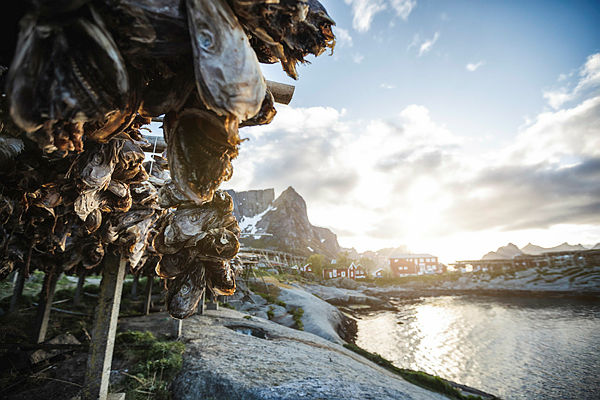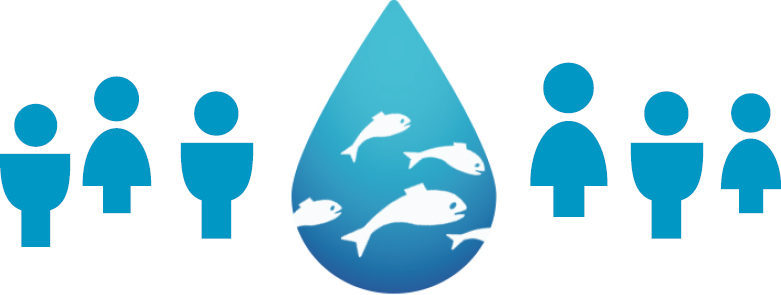Aquatic-Blue Food Coalition
Aquatic-Blue Food Coalition

Bonn Ocean Dialogues
Delegates at the Bonn Climate Change Conference wrapped up the last meeting of the technical dialogue of the first global stocktake on the 15th of June. The Ocean Dialogues took place on 13-14th of June and the Aquatic-Blue Food Coalition sought to influence the debate to promote greater integration of food systems transformation into the climate crisis discussions. Focusing on the importance of blue food as a climate solution. To that effect, the Coalition organized a side event in cooperation with GIZ of Germany, entitled: Strengthening Blue Foods’ Role in National Food Systems to Meet Climate and Nutritional Targets: The ‘Why’ and the ‘How To’.
The keynote speaker was Imelda “Dada” Bacudo, a representative from UAE COP 28 Presidency team giving a presentation on why COP 28 is targeting food systems and how they plan to advance the topic.
The discussion was rich in substance, moderated by Karly Kelso of EDF, with participation from Dr. Michelle Tigchelaar, Stanford Center for Ocean Solutions, Dr. Tarub Bahri, Food and Agriculture Organization of the United Nations, Dr. Rohana Subasinghe, FUTUREFISH and Honorable Minister Koomson from Ghana. Martin Hoppe from BMZ and Stefán Jón Hafstein chair of the Coalition gave their reflections.
In the summary remarks, Chair Hafstein thanked the COP 28 presidency for being supportive of the inclusion of aquatic and blue food in the climate dialogue and putting it firmly on the agenda at COP 28.
Attendees of the Ocean Dialogues were energized by comprehensive presentations and inclusive dialogue. Two days of dialogues, chaired by Chile and Canada, were mostly on ecosystem restoration with a particular focus on blue carbon; and fisheries and food security.
The summary of the dialogue is forthcoming on the Conference website. The overview can be seen at https://unfccc.int/.
Previous news
In the one since the Aquatic-Blue Food Coalition was formed at the UN Food System Summit it has sought to address the apparent lack of interest in the importance of food from the ocean in the global dialogue about the ocean and inlands waters. It has been one of the key missions of the Coalition to address this issue in international events getting the attention of not only the agricultural ministers who need to consider the importance of aquatic foods, but also fisheries ministers and environment ministers with responsibility for fish, shellfish and seaweed. As the world is more acutely sensitized to the need to keep food security in mind this agenda has been welcomed.
This has resulted in the Coalition being very focused on advocacy in international fora – in the context of a healthy ocean and sustainable aquaculture.
To shine a spotlight on the centrality of the ocean as a source of food, the Aquatic Blue Food Coalition organized a side event in the Our Ocean Conference in Palau in April with representatives from Tonga, Samoa, the Marshall Islands, Mozambique, Norway, US, USAID, the European Commission and the UN. This event (see press release with more details) highlighted the importance of blue foods to Pacific Islanders.
The Coalition also elevated the profile of aquatic foods at the July UN Ocean Conference in Lisbon. The UNOC political declaration included the following: “Mobilizing actions for sustainable fisheries and sustainable aquaculture for sufficient, safe and nutritious food, and recognizing the central role of healthy oceans in resilient food systems and for achieving the 2030 Agenda.”
During the UN Ocean Conference along with many Member States and non-state partners, the Coalition hosted an event in order to:
- Officially launch the Aquatic Blue Food Coalition
- Bring together policymakers and funding agencies to galvanize commitments for blue foods
- Recognize the critical role of small-scale fisheries in providing food security, nutrition and coastal stewardship, and call for action to swift implementation of the Small-Scale Fishery Guidelines, co-management and secure fishing rights for small-scale actors.
Fifteen speakers, including seven Ministers or other high ranking government officials, and representatives from civil society, fisher organizations and the private sectors, lent their support to this official Coalition launch; Global Action Network on Sustain Food from the Oceans and Inland Waters was among the event’s sponsors and supporters.
In September the Coalition worked together with partners to secure this message in the COFI report of the Committee on Fisheries (COFI) at FAO:
The Committee:
Highlighted the importance of aquatic foods from sustainable fisheries and aquaculture to global food security, nutrition and livelihoods, and their contribution to the achievement of the Sustainable Development Goals (SDGs), and the need for resources and partnerships to support this contribution. (para. 27)
Iceland and Norway joined forces in their interventions to mention the roles of Global Action Network and the Coalition together, and more than half a dozen Member States pushed for the aquatic and blue food agenda.
Iceland and Norway and a number of member countries have placed a strong focus on small-scale fisheries and aquaculture during this International Year of Artisanal Fisheries and Aquaculture. In a second, carefully negotiated provision of the COFI report,
The Committee:
Underscored the importance of sustainable fisheries and aquaculture in meeting future food needs, and in achieving sustainable and resilient food systems and welcomed global initiatives to strengthen partnerships and the promotion of food from the ocean and inland waters. In that regard further stressed the crucial contribution of small-scale and artisanal fishers, fish farmers and fish workers, and the need to address gender equity and inequalities in the fisheries and aquaculture sector.
The Coalition has now completed a work plan to guide its activities over the next year or. Looking ahead, over the coming months, the Coalition will:
- Develop policy priorities and advocacy strategy aimed at priority international forums like the Committee on World Food Security (CFS) supporting a GAN organized event; UNFCCC Convention of Parties (COP 27), G20/T20, and the Convention on Biological Diversity (CBD).
- Mobilize support — including investment, technical capacity, and partnerships — for countries, or groups of countries, that are setting out to integrate aquatic/blue foods into their food systems
- Focus on helping to develop programs sustainable aquaculture in Africa; blue foods & SIDs; blue foods in school meals where country convenors are eager to move forward.
